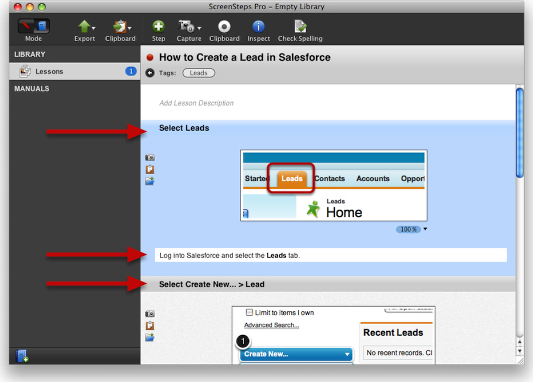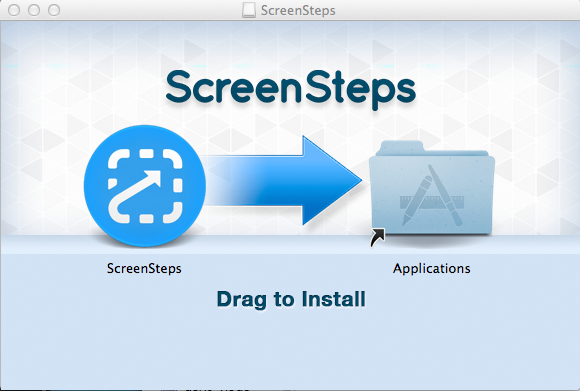
- #Screensteps windows update
- #Screensteps windows driver
- #Screensteps windows code
- #Screensteps windows windows
Add logos utilize custom CSS brand colors localize add borders to images and more. You can adjust each tool as desired: colors, widths and special attributes: Rectangle, Ellipse, Lines, Various Arrows, brush, text (any font/color), step numbers, blur/highlight/magnify/orc/crop.įinally export your guide in one of many formats: PDFs/Docs/PPTs/two HTMLs/JSONs/MDs and more coming. Utilize one of the multiple tools to add context to your screenshots. The Image Editor offers an extensive range of tools to modify your screenshots as required: WYSIWYG editor, nest steps, create multi-image steps, add new steps on the fly from new captures, existing images, clipboard content or have no-image steps. Once your process is recorded, you start customizing and editing images. It all begins with capturing, where you can choose to capture only the window you are working with, a particular area, or the entire screen - and you can switch between these modes quickly.

Try a different PC: If none of the above steps work, try using a different computer to image the cRIO.When using Folge, you can personalize every part of your guide.The tool will prompt you to take the cRIO out of Safe Mode, then try again. If the cRIO is detected by the imaging tool attempt to format. To reboot in Safe Mode on a 4-slot cRIO, hold the reset button for 5 seconds, then release. To reboot in Safe Mode on an 8-slot cRIO, flip the Safe Mode DIP switch, then reset the cRIO. If the cRIO is still not detected, try rebooting the cRIO in Safe Mode.If multiple addresses are present, select the extra addresses and click Remove. When you reach the last step, click the Advanced button and verify that only one address is listed in the top box. To do this open the Network Properties as shown in the Configure Computer IP Address steps above. Check that the adapter is set to a single IP address.If possible, temporarily disable the Firewall by following the steps below.
#Screensteps windows windows

If the cRIO Imaging Tool is unable to locate the cRIO, or a Timout error message is displayed during cRIO Imaging, the issue is likely with the network configuration.
#Screensteps windows driver
Note: For proper operation on the playing field at competition the subnet mask should be set back to 255.0.0.0 after imaging is complete if this PC will be used as a Driver Station.įor instructions on connecting the Driver Station to the cRIO for the first time and verifying connectivity see Using the Classmate with your cRIO.įor instructions on writing and loading your first program see one of these documents or manuals: C++, Java, LabVIEW.
#Screensteps windows code
The cRIO imaging tool will begin imaging your cRIO, after it is complete, you should see a message indicating that the imaging is complete and you need to load code in order to use the cRIO.

Enter your FRC team number in the Team ID box.
#Screensteps windows update
If there is no image listed in this box or the image is not v52, make sure you have installed the latest update for your programming language. Verify that the image listed is FRC_2014_v52.zip (Note: The picture above shows 2013_v46).Check the box next to Format Controller.Note that if you select a CAN plugin with the Console Out feature enabled, on a 4-slot cRIO-FRCII the Console Out will be disabled automatically, on an 8-slot cRIO-FRC you will see a prompt to flip the switch to disable Console Out. Select whether to enable NetConsole (Java teams will have NetConsole enabled automatically).LabVIEW teams are strongly recommended to check the Always run deployed code at startup checkbox. Select the programming language to use.Select the options you wish to use, then image the cRIO: Once your cRIO is detected, it should be displayed in the box near the top of the Imaging Tool.


 0 kommentar(er)
0 kommentar(er)
